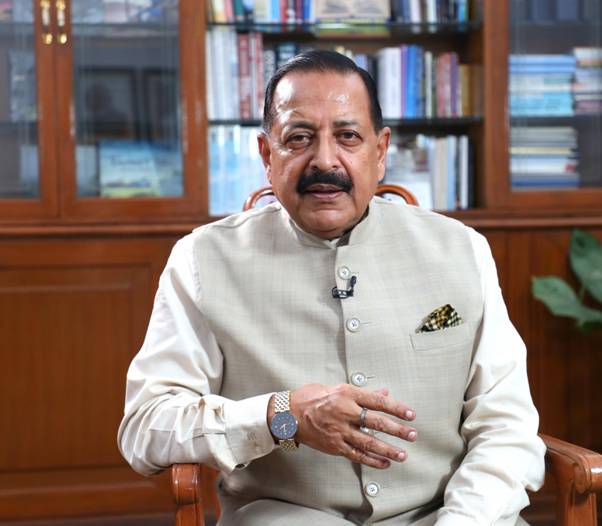New Delhi: Under Prime Minister Narendra Modi’s leadership over the past 11 years, India has witnessed a significant “democratisation of Civil Services,” as highlighted by Union Minister Dr. Jitendra Singh. This shift, according to Dr. Singh, has been accompanied by a corresponding democratisation of youth aspiration, broadening the geographical representation within the civil services.
Historically, success in the IAS and other civil services examinations was often concentrated in a few states, such as Bihar, Tamil Nadu, and Kerala. Dr.Singh spoke to Doordarshan News on the issue.
However, Dr. Jitendra Singh points out a notable change: today, top ranks are increasingly secured by candidates from states that were previously underrepresented. He cited examples like Parsanjit Kour from Poonch, Jammu & Kashmir, who achieved All India Rank 11 in her very first attempt in the Civil Services Exam of 2022, and Anmol Sher Singh Bedi from Punjab, who secured All India Rank 2 in the 2016 examination.
This trend suggests a wider distribution of opportunities and aspirations across the nation, indicating that the appeal and accessibility of civil services are no longer confined to traditional strongholds.
The increased participation and success from diverse regions like Punjab, Haryana, and Jammu & Kashmir underscore a broadening of the talent pool entering India’s bureaucracy under the Modi government.
This “democratisation” implies that the civil services are becoming more representative of India’s diverse demographic and geographical landscape, potentially leading to a bureaucracy that is more attuned to the varied needs and perspectives of the entire country.


